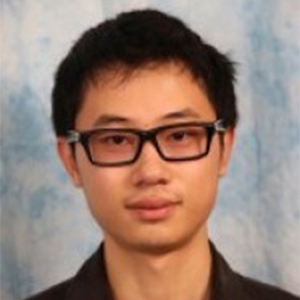
Carnegie Mellon University
11:00 am to 12:00 pm
NSH 1305
Abstract:
A high-fidelity and tractable mechanics model of physical interaction is essential for autonomous robotic manipulation in complex and uncertain environments. This thesis studies several aspects of harnessing task mechanics for robotic pushing and grasping operations: mechanics model learning, pose and model uncertainty reduction, and planning and control synthesis in the minimal coordinate space.
We begin with a study of the mechanics of planar sliding as captured by a proposed efficiently identifiable convex polynomial force-motion model. Given a position-controlled manipulator action, we derive a kinematic contact model that resolves the contact modes and instantaneous object motion. This enables a generic quasi-static planar contact simulation validated with extensive robotic grasping and pushing experiments.
Based on the contact model, we prove that quasi-static pushing with a sticking contact is differentially flat using both graphical and algebraic derivations. The pusher-slider system is reducible to the Dubins car problem where the sticking contact constraints translate to bounded curvatures. For trajectory stabilization in the presence of model uncertainty, we design closed-loop control using dynamic feedback linearization or open-loop control using two contact points as a form of mechanical feedback. To reduce initial pose perception uncertainty, we propose a probabilistic algorithm that generates sequential uncertainty reduction actions based on finger encoder feedback until the object pose is uniquely known (subject to symmetry).
Going beyond position-controlled planar manipulation, we demonstrate grasping a large-size book where the robot needs to perform a sequence of non-prehensile contact-rich actions to finish the task while obeying kinematic and hardware limitations. Such actions include reorienting the book by force-controlled twisting and pulling, and push-grasping in the gravity plane treating the table as a third supporting finger.
Thesis Committee Members:
Matthew T. Mason, Co-chair
J. Andrew Bagnell, Co-chair
Christopher G. Atkeson
Russ Tedrake, MIT CSAIL
